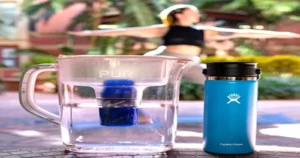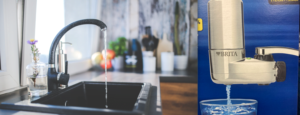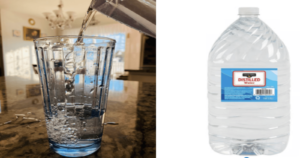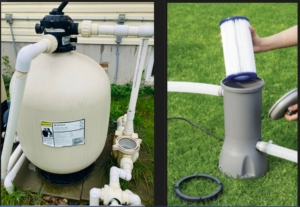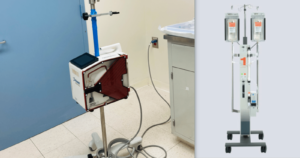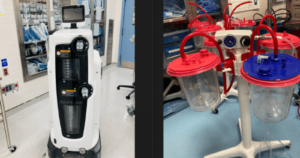Brita specializes in water filtration by using a carbon filtration process that uses activated carbon filters that reduce contaminants and impurities in the water vs Zero water use a multi-stage filtration process that involve ion exchange, Activated Carbon, Microfiltration and reverse Osmosis to remove impurities from water. This process typically involves several layers of different filter media, each designed to target specific contaminants.
Choice of a filtration system plays a pivotal role. In this pursuit, two prominent contenders have emerged, Brita and Zero Water Filters. Each brand comes with its own set of features, filtration methods, and claims of water purity. Brita, a household name in water filtration, has long been trusted for its efficient and cost-effective solutions.
On the other hand, Zero Water, a relative newcomer, has gained attention for its innovative approach that promises to eliminate virtually all dissolved solids from tap water. This comparison aims to dissect the strengths and limitations of both systems, shedding light on which one might best cater to the specific needs and preferences of discerning consumers in their quest for the purest, most refreshing glass of water.

Zero water filter
Zero Water is a brand of water filtration products known for its advanced filtration technology which removes 99.6% of total dissolved solids (TDS), which refers to any inorganic or organic substances dissolved in water, such as minerals, salts, metals, and other ions. TDS is typically measured in parts per million (ppm) or milligrams per liter (mg/L).
Zero Water filters are designed to reduce the TDS level in water, aiming to provide purified water with a TDS reading of zero. Here’s how it works:
How Dose Zero Water Filter works?
- Multi-Stage Filtration: Zero Water filters use a multi-stage filtration process to remove impurities from water. This process typically involves several layers of different filter media, each designed to target specific contaminants.
- Ion Exchange: One of the key technologies in Zero Water filters is ion exchange. This process involves replacing undesirable ions with more desirable ones. In this case, it involves exchanging ions from the water with ions attached to the filter’s resin beads.
- Activated Carbon: Many Zero Water filters include activated carbon, which is highly effective in adsorbing organic compounds, chlorine, and some heavy metals. Activated carbon works through a process called adsorption, where contaminants adhere to the surface of the carbon particles.
- Microfiltration: This stage involves passing water through a fine mesh or membrane that physically blocks particles larger than a certain size. This helps remove larger impurities from the water.
- Reverse Osmosis (in some models): Some advanced Zero Water systems may include a reverse osmosis stage. Reverse osmosis uses a semi-permeable membrane to filter out even smaller particles and ions.
- Final Polishing Filter: This stage is designed to further refine the water quality, ensuring that it meets the stringent standards set by Zero Water.
The result of this multi-stage filtration process is water that has a very low TDS level. However, it’s important to note that a TDS reading of zero doesn’t necessarily mean the water is devoid of all substances. It means that the filter has removed the measurable dissolved solids down to a very low level.

10 Key Benefits Of Zero water filter
- Effective Filtration: Zero Water uses a 5-stage filtration process, which includes a combination of activated carbon, ion exchange resin, and other filtering materials. This process is designed to remove a wide range of contaminants, including heavy metals, chemicals, bacteria, and microplastics.
- Removal of Total Dissolved Solids (TDS): Zero Water filters are specifically designed to reduce the total dissolved solids in water. TDS include minerals, salts, and other impurities that can affect the taste and quality of water.
- Improved Taste and Odor: By removing impurities and TDS, Zero Water can significantly enhance the taste and odor of tap water, providing a cleaner and more refreshing drinking experience.
- Health Benefits: Removing contaminants from drinking water can contribute to better health outcomes. It can reduce exposure to harmful substances like lead, chlorine, and certain microorganisms, which can have adverse effects on health over time.
- Cost-Effective: While initial investment in a Zero Water system may be higher than buying bottled water, in the long run, it can save money compared to continuously purchasing bottled water. It’s also more environmentally friendly, as it reduces plastic waste.
- Environmentally Friendly: Using a water filtration system like Zero Water reduces the need for single-use plastic bottles, which can have a positive impact on the environment. It helps to reduce plastic waste and the associated environmental problems.
- Convenience: Having a Zero Water filter at home means you have access to clean, purified water at any time. You don’t need to rely on store-bought bottled water, and you can fill up reusable containers for on-the-go use.
- Versatility: Zero Water offers a range of products, including pitchers, dispensers, and portable tumblers. This means you can choose a filtration system that fits your specific needs and lifestyle.
- Peace of Mind: Knowing that your drinking water has undergone a thorough filtration process can provide peace of mind, especially if you live in an area with known water quality issues.
- Easy Maintenance: Zero Water filters are relatively easy to maintain. They come with a TDS meter that indicates when it’s time to replace the filter. This helps ensure that you’re always getting the best quality water.
Key Points to Consider when Using Zero Water Filter
It’s worth mentioning that while Zero Water filters are effective at reducing TDS(total dissolved solid), they may also remove some beneficial minerals from the water. This is why some people prefer to use remineralization cartridges or add mineral drops to their purified water to restore some of these essential elements.
8 Important Health Benefits of Zero water Filter Use.
- Removal of Contaminants:
- Heavy Metals: Zero water filtration systems often target heavy metals such as lead, mercury, and cadmium, which can be harmful to health when present in drinking water.
- Chlorine: Zero water filters commonly eliminate chlorine, which is added to municipal water supplies for disinfection but can have adverse effects on taste and smell.
- Improved Taste and Odor:
- Filtration can enhance the taste and odor of water by removing unpleasant elements, making it more palatable and encouraging increased water consumption.
- Reduced Health Risks:
- By eliminating potential contaminants, zero water helps reduce the risk of waterborne diseases and illnesses associated with the consumption of impure water.
- Promotes Hydration:
- Clean and pure water encourages regular hydration, which is essential for overall health. Proper hydration supports various bodily functions, including digestion, circulation, and temperature regulation.
- Better Nutrient Absorption:
- Drinking purified water may enhance the body’s ability to absorb nutrients from food, as impurities and contaminants in water can interfere with nutrient absorption.
- Supports Organ Function:
- Clean water is crucial for the optimal functioning of organs such as the kidneys and liver. It helps these organs in their natural detoxification processes.
- Protects the Immune System:
- Drinking pure water can contribute to a healthier immune system by preventing exposure to potentially harmful substances that may compromise immune function.
- Environmental Impact:
- Using zero water filters can contribute to a reduction in the consumption of single-use plastic bottles, promoting environmental sustainability and reducing the environmental impact of plastic waste.

Advantages of zero water filter vs Brita water filter
Advantages of Zero Water:
- Five-Stage Filtration: ZeroWater uses a five-stage filtration process, including an ion exchange stage and an activated carbon stage. This extensive filtration system is designed to remove more impurities compared to some other filters, including Brita.
- TDS (Total Dissolved Solids) Removal: ZeroWater filters are known for their ability to reduce TDS levels in water effectively. TDS includes various minerals, salts, and metals that can affect the taste and quality of water.
- Digital TDS Meter: ZeroWater typically comes with a digital TDS meter that allows you to measure the total dissolved solids in your water. This feature helps you monitor the filter’s performance and know when it’s time to replace the filter.
- Removal of Heavy Metals: ZeroWater filters are designed to remove heavy metals such as lead and chromium from water, providing an added layer of protection.
Advantages of Brita:
- Wider Availability: Brita filters are widely available and can be found in many retail stores. The availability of replacement filters is convenient for users who may need to replace their filters frequently.
- Affordability: In general, Brita pitchers and replacement filters tend to be more affordable than ZeroWater equivalents. This makes Brita a budget-friendly option for those looking to improve the taste of their tap water.
- Ease of Use: Brita pitchers are straightforward to use, and the filter replacement process is simple. The ease of use can be attractive to users who want a hassle-free water filtration experience.
- Variety of Models: Brita offers a variety of pitcher sizes and faucet-mounted filters, providing users with options based on their specific needs and preferences.
Brita Water Filter
Brita is a well-known brand that specializes in water filtration products. It uses a carbon filtration process. Brita water filters work through a simple process. They typically use activated carbon filters that reduce contaminants and impurities in the water.
Activated carbon is known for its ability to adsorb a wide range of pollutants. such as chlorine, lead, mercury, cadmium, copper, and benzene. They also help improve the taste and odor of tap water.
Carbon filter, is a type of filtration system that uses a bed of activated carbon to remove impurities and contaminants from water or air. It’s a highly effective method for improving water quality and reducing odors and chemical concentrations.
Here is how carbon filter works
- Activated Carbon: The key component of a carbon filter is activated carbon. This is a specially treated form of carbon that has a very high surface area due to its porous structure. It’s created by heating carbon-rich materials (like wood, coconut shells, or coal) at high temperatures with a controlled amount of oxygen.
- Adsorption: Activated carbon works through a process called adsorption, not to be confused with absorption. In adsorption, molecules and particles adhere to the surface of the carbon, essentially sticking to it. This occurs due to the attractive forces between the contaminants and the carbon surface.
- Contaminant Removal: Activated carbon is very effective at removing a wide range of contaminants, including organic compounds, chlorine, volatile organic compounds (VOCs), sediment, unpleasant odors, and some heavy metals. It’s commonly used to improve the taste and odor of drinking water.
- Varieties: Activated carbon comes in various forms, including granular activated carbon (GAC) and powdered activated carbon (PAC). GAC is used in larger filtration systems like whole-house filters, while PAC is often used in smaller filters like those found in water pitchers.
- Duration of Effectiveness: The effectiveness of a carbon filter depends on factors like the flow rate of water or air, the size of the filter, and the concentration of contaminants. Over time, the surface of the activated carbon becomes saturated with adsorbed impurities, reducing its effectiveness. This is why carbon filters need periodic replacement.
- Regeneration: In some industrial applications, activated carbon can be regenerated through a process that involves heating it to high temperatures in the presence of steam or other gases to remove the adsorbed contaminants. However, this process is typically not practical for home use.
- Common Applications:
- Water Filtration: Carbon filters are widely used in water treatment plants, home water pitchers, under-sink filters, and whole-house filtration systems.
- Air Filtration: Activated carbon filters are used in air purifiers to remove odors, smoke, and volatile organic compounds.
- Industrial Applications: They’re used in industries like chemical processing, food and beverage production, and pharmaceuticals for purification and deodorization.
Important Benefits of using Brita water Filter
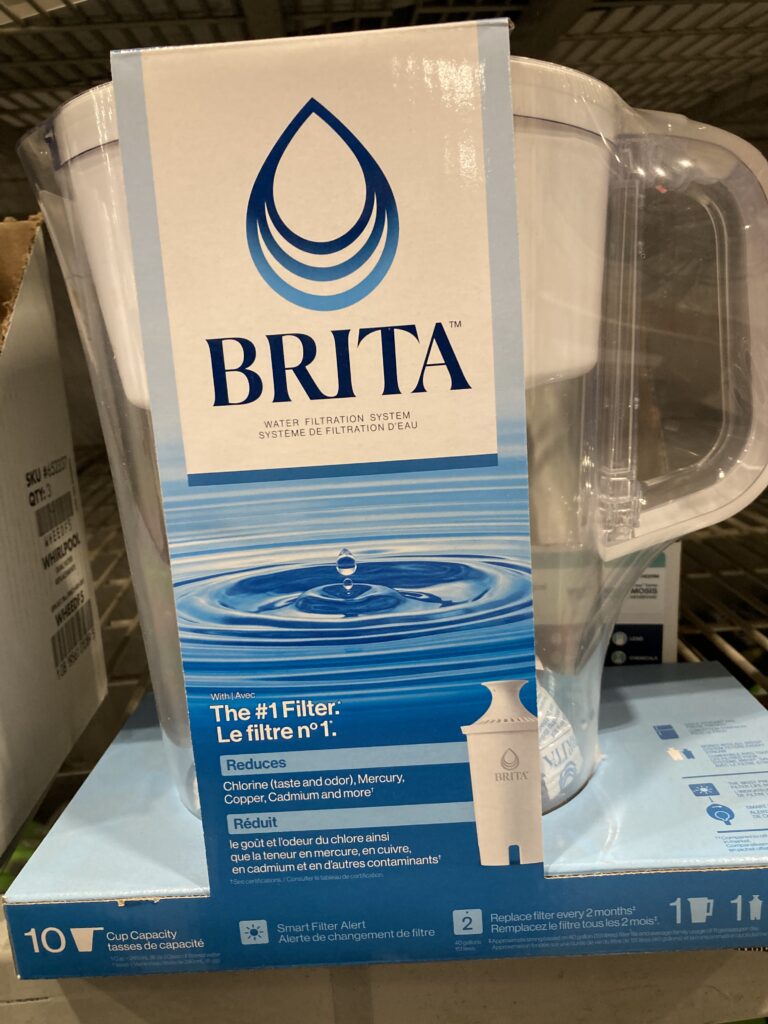
Brita pitcher
- Improved Taste and Odor: Brita filters can remove impurities like chlorine, which can give water an unpleasant taste and odor.
- Reduced Chlorine and Sediment: They effectively reduce common water contaminants like chlorine, sediment, and some heavy metals, which can be present in tap water.
- Healthier Minerals: While Brita filters reduce certain minerals, they leave beneficial ones like calcium and magnesium in the water, which are important for health.
- Cost-Efficient: Buying bottled water can be expensive in the long run. Using a Brita filter is a more cost-effective way to ensure you have access to clean, great-tasting water.
- Environmental Impact: Using a water filter reduces the need for single-use plastic bottles, which helps to decrease plastic waste and its environmental impact
- Convenience: Having a Brita filter allows you to have access to clean water right from your tap, reducing the need to buy, store, or recycle bottled water.
- Easy Installation and Maintenance: Brita filters are typically easy to install and maintain. Replacement filters are readily available and usually simple to replace.
- Versatility: Brita offers a range of products, from pitchers to faucet attachments and even larger systems, providing options for various needs and preferences.
- Safer for Sensitive Groups: For individuals with certain health conditions or compromised immune systems, filtering water can provide an extra layer of protection.
- Peace of Mind: Using a Brita filter can give you confidence that you are drinking water with reduced impurities, potentially leading to better overall health.
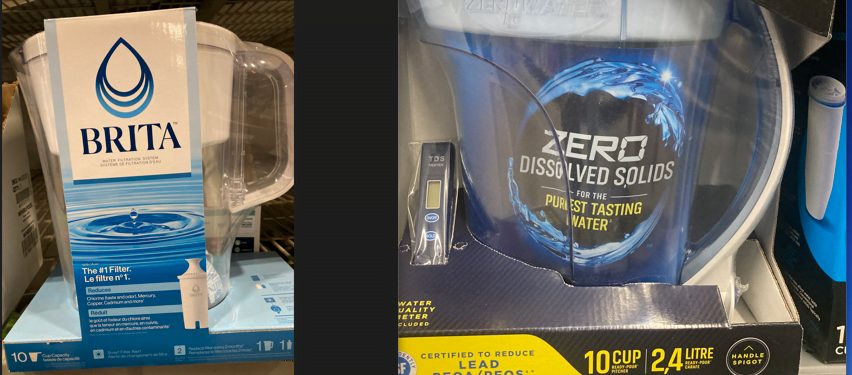
Things to take into Consideration when using a Brita water Filter
It’s important to note that while Brita filters are effective for many common contaminants, they may not remove all potential contaminants from water, such as bacteria or certain types of minerals. If you have specific concerns about your water quality, you may want to consider more advanced filtration systems or consult local water authorities for more information.
Zero Water filter compare to Brita Water filter
Zero water filter
- Filtration Process: Zero Water uses a multi-stage filtration process that includes ion exchange and a five-stage filter to remove virtually all dissolved solids, resulting in a TDS reading of 000 (the purest form of water).
- Filter Longevity: Zero Water filters tend to last for about 15-25 gallons or 1-2 weeks, depending on usage and water quality.
- Filter Replacement Cost: Zero Water filters are typically more expensive compared to Brita filters due to their advanced filtration technology.
- Removes: Virtually all dissolved solids, including minerals, salts, metals, and other impurities.
- pH Level: Zero Water may reduce the pH level of water, making it more acidic. This is because it removes minerals which contribute to pH levels.
- TDS (Total Dissolved Solids) Reduction: Zero Water is highly effective at reducing TDS to 0 ppm, providing water that is extremely pure.
Brita Water Filter
- Filtration Process: Brita primarily uses activated carbon filters to reduce impurities like chlorine, sediment, and some heavy metals. It improves taste and odor.
- Filter Longevity: A standard Brita filter usually lasts for about 40 gallons or approximately 2 months, depending on usage and water quality.
- Filter Replacement Cost: Brita replacement filters are generally more affordable compared to Zero Water.
- Removes: Chlorine, some heavy metals, sediment, and some common contaminants.
- pH Level: Brita does not significantly alter the pH level of water.
- TDS (Total Dissolved Solids) Reduction: Brita reduces TDS to some extent, but it may not be as effective as Zero Water in this regard.
Cost Of Brita vs Zero Water Cost
- Initial Purchase Cost:
- Brita: Brita filtration systems, whether pitchers, faucet attachments, or dispensers, typically have a lower upfront cost compared to ZeroWater systems.
- ZeroWater: ZeroWater systems tend to be more expensive initially due to their advanced filtration technology.
- Filter Replacement Cost:
- Brita: Replacement filters for Brita systems are generally more affordable compared to ZeroWater. The cost of replacement filters can vary depending on the specific model and type of filter.
- ZeroWater: Replacement filters for ZeroWater are typically more expensive due to their multi-stage filtration technology, which provides a very high level of purification.
- Long-term Costs:
- Brita: Over time, the cost of replacement filters for Brita may still be lower compared to ZeroWater. However, this can vary depending on factors like usage, local water quality, and the specific models being compared.
- ZeroWater: While the initial investment for a ZeroWater system and its replacement filters may be higher, it provides extremely pure water with a TDS reading of 000. This could be a cost-effective option for individuals who prioritize the highest water purity.
- Usage and Filter Lifespan:
- Brita: Brita filters typically last for about 40 gallons or approximately 2 months, depending on usage and water quality.
- ZeroWater: ZeroWater filters tend to last for about 15-25 gallons or 1-2 weeks, again depending on usage and water quality.
Simple key tips for choosing a filter
Ultimately, the choice between Brita and ZeroWater depends on your specific needs and preferences. If you’re primarily concerned about taste and common contaminants, Brita might be sufficient. However, if you’re looking for the purest water possible with the lowest TDS levels (Total Dissolved Solids) , ZeroWater may be the better choice, despite the higher cost.
Resources
Personal experiences with both filter.

